“An author’s ability to solve conflict with magic is directly proportional to how well the reader understands said magic.” (Brandon Sanderson)
Magic and the mythical are the elements that drive me to fantasy. They turn mundane situations into something fantastical – allowing the reader to escape into a whole other world. They experience things that here on earth, are impossible (as far as we know). Fantasy allows us to explore the constructs of our society and ask ourselves what-if questions. We can explore the philosophical issues in ways that the answer only lies within fantasy.
Fantasy allows us to explore the fallacy of critical societal issues; how they impact society in their most extreme circumstances. It will enable us to grow in a way that will help our reality.
Many argue, fantasy is intended for kids or nerds, and shouldn’t be read by an average adult.
To that, I say humbug.
Fantasy is one of the most critical genres for exploring our humanity and answering the key question; what is the meaning of life?
Harry Potter taught me to believe in myself and the people who are in my corner.
Lord of the Rings taught me no matter how small you think you are; you are worthy of a grand adventure.
Dragon age taught me no matter your background; you can achieve great things for the world.
Though, here is the caveat, if your fantasy setting doesn’t nail the magic system than it will throw the reader out of the world and have them closing your book. We don’t want that, so first thing, first:
What is Magic?
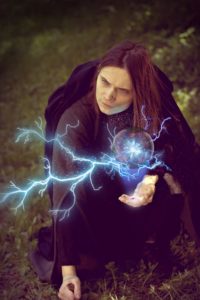
Magic is a tool used to explore the themes of your novel and push your character through their transformation. It needs to serve the purpose of your story. How that looks varies author by author and will tie into the character arc of the novel. If they (your protagonist) have a need for acceptance, their power concerning said magic will grow as they accept themselves.
According to Chris Fox, there are five questions you need to ask yourself when it comes to your magic system;
What is magic?
How common is magic?
What can magic do?
How is magic learned?
And, what does magic look like?
By answering these five questions, you will get a clear idea of how magic affects the world.
In my world: Symphonia. Magic comes in two forms. Spiritual magic comes from one’s inner emotions. Elemental magic is based on the manipulation of one’s outer world and control over nature. Spiritual magic is common and awakened through meditation; however, elemental magic is rare and frowned upon within society. Elemental magic is taught in hidden academies. The physical manifestation of spiritual magic looks like flames in the color of the emotions corresponding chakra. It raises the dead, heals wounds, and more. Elemental magic changes the shape of the world and the environment.
By answering these questions, I visualize how magic plays a part in my world and can translate that onto the page. Knowing these answers in advance gives me a better understanding of a magic user’s role in society.
Rules and Limitations
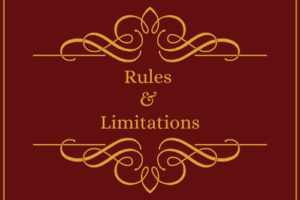
“The limitations of your magic system are far more interesting than the abilities of your magic system” (Nat Russo, Erindorpress).
All magic systems have a set of rules, and the clearer these rules are to the reader, the better they will understand and believe its existence in the world. It is your job not to break the rules you set forth. Otherwise, the reader will be angered.
If you have a rule that says you need three ingredients to cast a specific spell. In the end, the character casts the spell with different ingredients or no ingredients; the victory feels cheap to the reader.
The best magic systems in fantasy are simple to understand. When magic happens within your story, the reader will say, “that makes sense!” Being consistent with your magic system is vital! Consistency promotes suspension of disbelief, allowing the reader to get invested within the world you are presenting.
The best way to add tension within your magic system is through the limitations that you present. Limitations allow the stakes to rise within the conflict and enable the reader to understand what can and cannot be done with said magic.
If magic has no limits, it comes off cheap when it is used to solve a conflict within the plot. Magic steals the victory from the character/s. If you want to use magic to solve a problem, the solution must be something the reader could’ve figured out based on their understanding of said magic system.
Magic systems generally fall into one of two categories. First; we will dive into the:
Hard Magic System
Strict rules are the defining feature of a hard magic system. The reader knows everything the magic is capable of and what magic cannot accomplish. The limitations are clear from the onset, and all the parameters of magic are defined.
In Avatar: The Last Airbender, it is established that only the avatar can control all four elements. If we see a waterbender, bending fire, the viewer would raise an eyebrow and would lose their suspension of disbelief.
The same is true for all hard magic systems. They do not have room for inconsistency. According to Hellofutureme, magic is a defined tool to solve problems. By setting forth the rules, readers understand how the character came to the outcome of said problems.
Consistency allows readers to feel connected to the magic system. They develop their own understanding of how said magic works.
Along with limitations, hard magic systems have weaknesses and costs. Weaknesses come in many different forms from vulnerabilities, power struggles, or even within the user themselves. The idea of fire is weaker than water.
Costs can come in the form of materials, physical ability, and a loss of self or environment. Often you can find a balance between limitation and cost – if there are more limits than there are less costs and vice versa.
“The best magic systems affect the way your characters think or act or change the way your fictional world operates” (Hellofutureme).
On the other side of the coin we deal with the:
Soft Magic System
In opposition to hard magic systems, soft systems have fewer limitations. They still have limitations; just less defined and more mysterious to the reader. Hard magic systems are spelled out and clearly state what can and cannot work, whereas soft magic systems are defined by what is shown.
Magic has an open-ended structure that comes off as said magic practically does anything. However, a good soft magic system still has rules and limitations. It requires consistency to pull off.
The rules are not written down and addressed to the reader, so they learn your magic capabilities by what is preformed by protagonists or antagonists. This lends writers to fall in the pitfall of “magic saved the day because I said so.” This pitfall comes off cheap to the reader and invites them to close your book.
Leaving hints to the capabilities of your magic system toward the beginning of your story allows the payoff at the end to feel earned.Lord of the Rings has a soft magic system. Readers know Gandolf uses magic, and the ring is magical. Still, Tolkien never clearly states how said magic works or how it is limited. However, Tolkien rarely relies on magic to solve conflicts in the plot, it happens as an occasional tool, but never feels as if the fellowship couldn’t have moved forward without it. The reader is on board.
Conclusion
Having a clear and concise magic system is an author’s tool to solve problems within the plot. For the magic to feel earned, the reader must understand how said magic works and have the ability to come up with the solution themselves.
Soft magic systems have more wiggle room when it comes to the limitation. Still, the parameters must be clear and consistent throughout the novel. Readers are willing to suspend disbelief if the magic fits well into the world and feels alive within the narrative
C. D. Baron
Latest posts by C. D. Baron (see all)
- What is The Novella? Why You Must Write One to Improve Your Skills! - 03/21/2021
- Wake Up! A Short Story (Work in Progress) - 02/07/2021
- My Top 5 Favorite Reads of All Time (So Far) - 01/24/2021
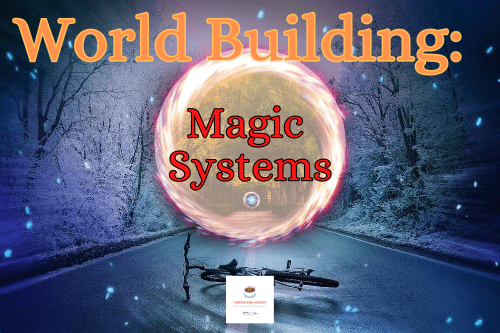



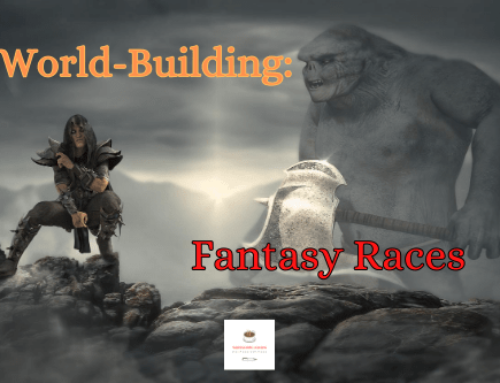
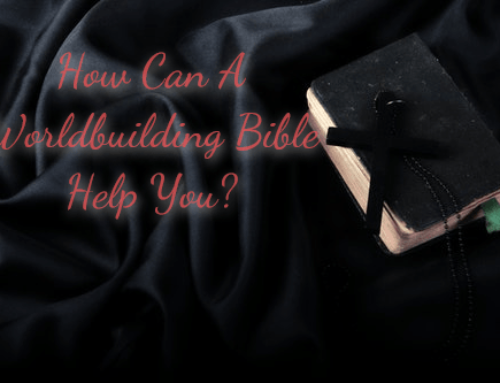
Ooh, this is helpful! Thanks for sharing! 😁 By the way, how do I follow your blog on WordPress? I don’t see any follow button.
I am glad you found the information useful! I will add another article in world-building this Saturday, focusing on fantasy races. I have an email opt-in for my blog, through there I send weekly updates alerting subscribers to my newest articles! As I am new to the world of blogging, I was unaware of the ability to follow blogs on WordPress, I will look into that option as well!